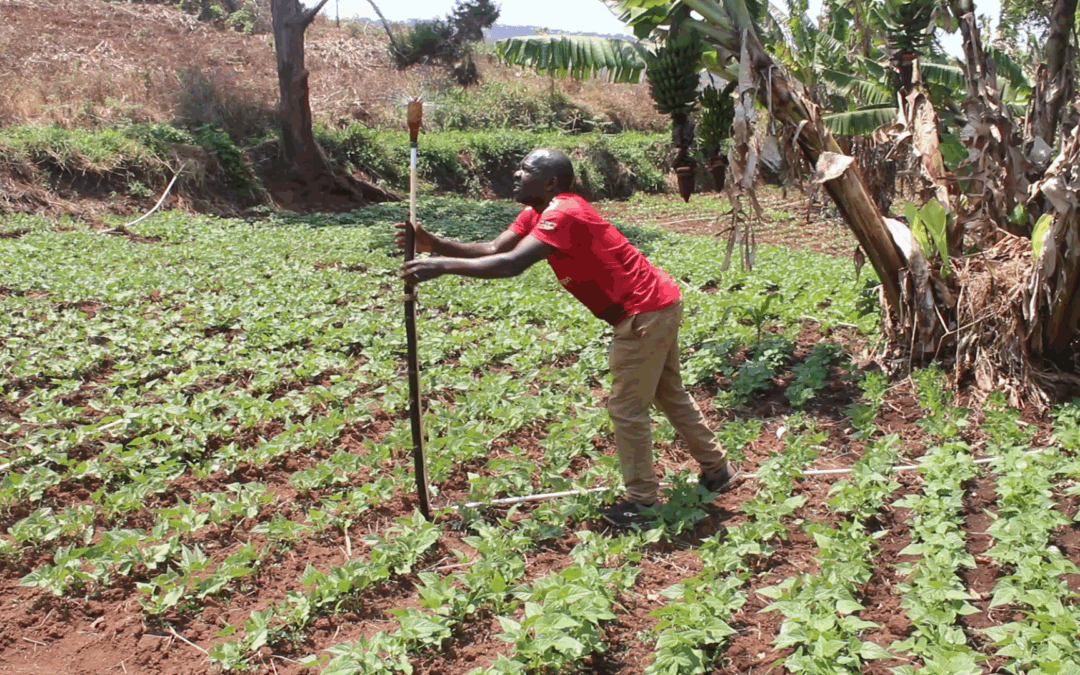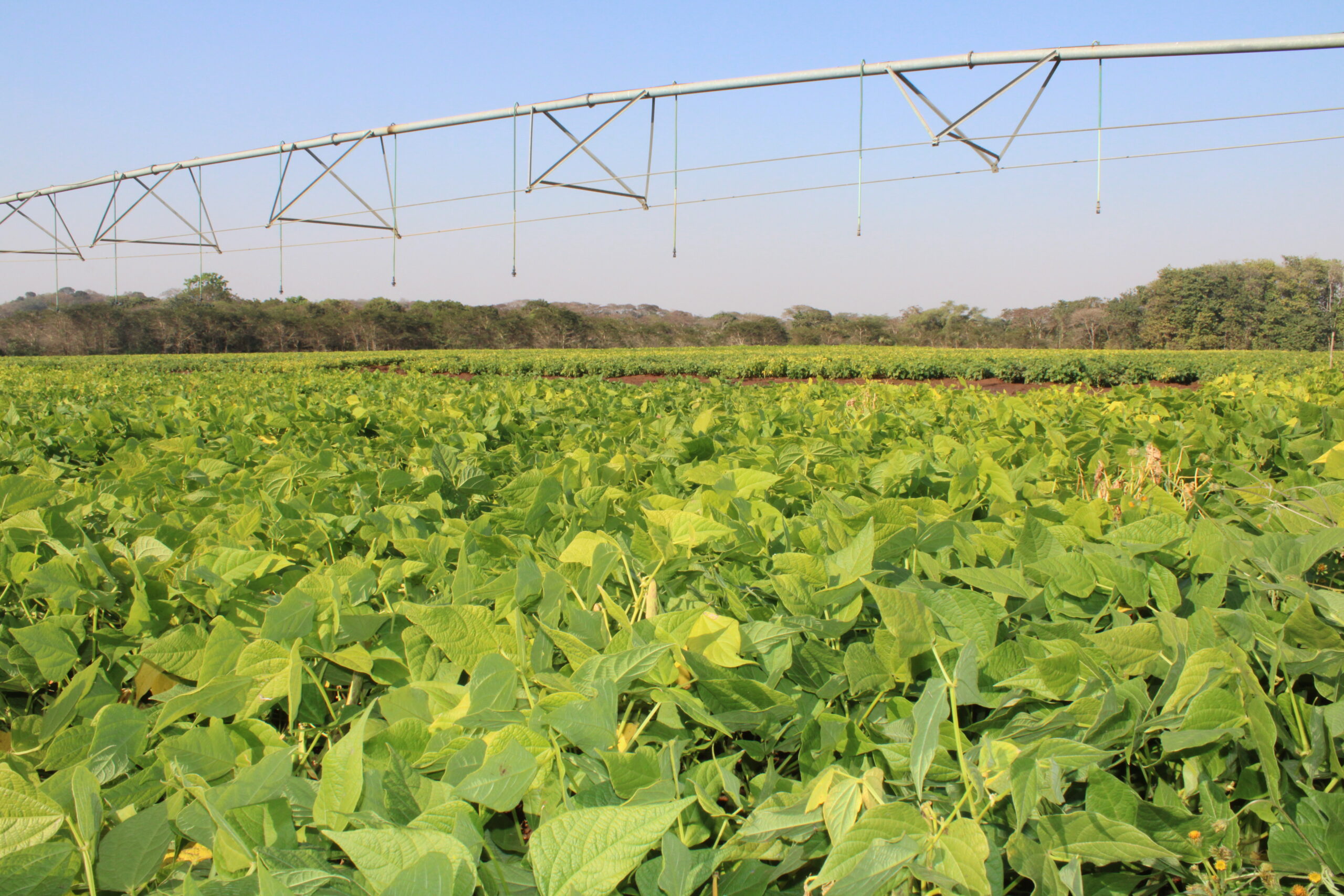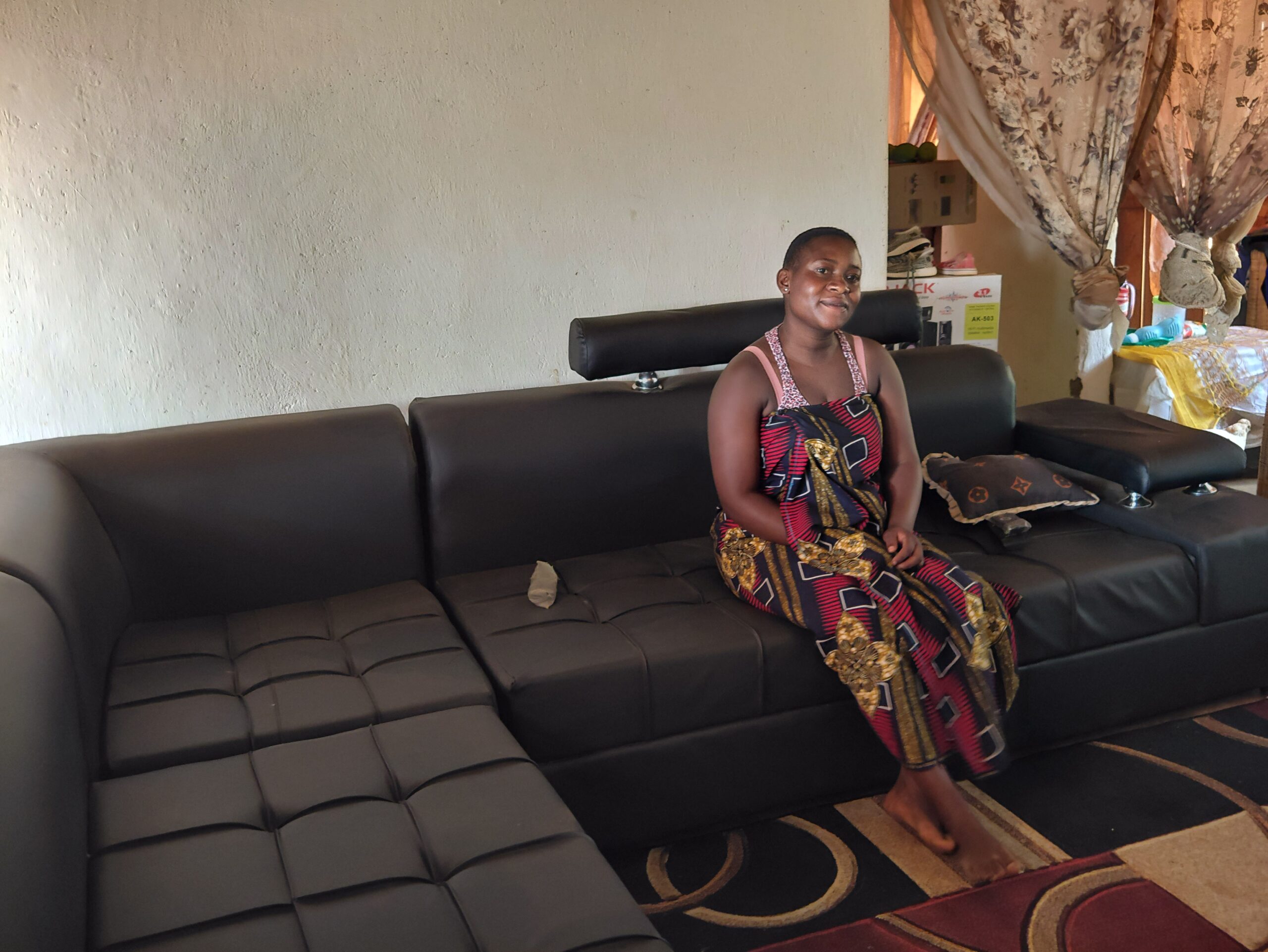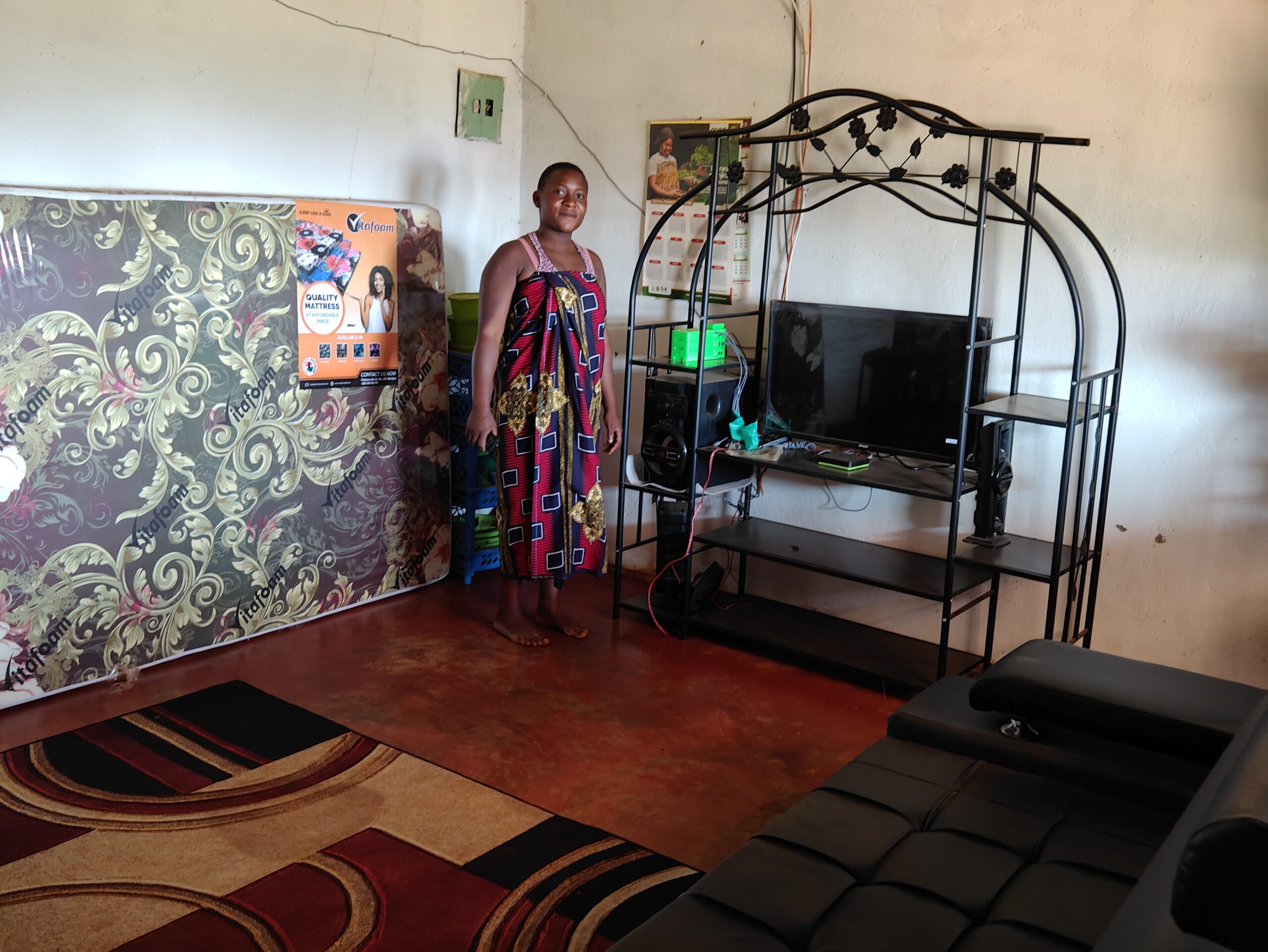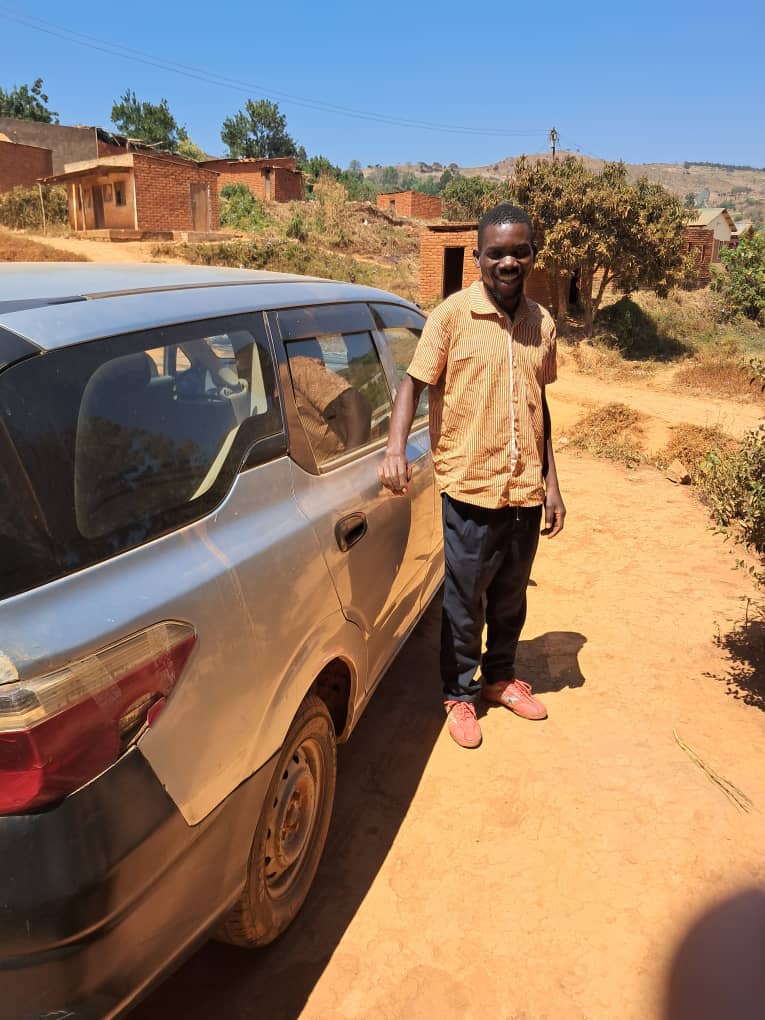By Yohane Chideya, Eunice Magwaya, Wilson Nkhata, Jean Claude Rubyogo
In Malawi, bean production among smallholder farmers is often marked by low yields due to limited access to high‑quality, climate‑resilient seed and minimal private sector involvement. Yet in the quiet, mountainous community of Mphompha in Rumphi District, 450 kilometers north of the capital Lilongwe, smallholder farmers are rewriting this story. By organizing into cooperatives, adopting improved seed varieties, and linking directly to emerging markets, they are boosting productivity and building resilience against climate shocks. Their journey shows how targeted investments and farmer‑led innovation can transform livelihoods.
Through the Mphompha Farmers Club, these farmers are turning beans into profits and better nutrition. With support from the Alliance of Bioversity International and CIAT, through the Pan-Africa Bean Research Alliance (PABRA), under the Accelerated Innovation Delivery – Initiative (AID-I), farmers are gaining access to improved bean varieties, fertilizers, and reliable markets. The initiative, implemented in collaboration with Seed Co Malawi, strengthens the entire bean seed value chain by linking research, seed companies, and farmers.
Within this system, The Alliance, through PABRA initially supplied breeder seed to MacPherson, a registered producer of foundation seed, who multiplied it into pre-basic seed. The pre-basic seed was then supplied to Seed Co Malawi, Nyasa Tobacco, and Chimpeni Estate for further multiplication. Seed Co, in turn, engaged the Mphompha Farmers Club to produce basic and certified seed respectively from prebasic sourced from Duncan Macpherson. Through contractual arrangements, Seed Co supplied NUA45 prebasic seed, which farmers multiplied to produce basic seed and later sold back to the company at MK 5,000 (USD 2.85) per kilogram, ensuring a guaranteed market and stable income.
With technical guidance and oversight from PABRA, the 22-member group (5 women and 17 men) collectively produced 18,300 kg of basic bean seed during the reporting period, generating a total of MK 91.500,000, (Approx. USD 52,255) in sales — with female farmers contributing 6,148 kg valued at MK 30,000,000 (USD 17,555) and male farmers producing 12,152 kg worth MK 60,760,000 (USD 34,700).
This production not only generated substantial household income but also strengthened the local seed system, ensuring a sustainable supply of high-quality, nutritious bean seed for wider distribution and contributing to both livelihoods and food security in the region.
One of the members, Brenda Kalinde from Chimoyo Village, joined the club to improve her finances. That goal is now becoming a reality, with immense benefits.
“I planted 50 kilograms on 0.5 ha and harvested 800 kilograms translating 1600 kg/ha, double the country average yield of 750 kg per ha,” Brenda shares. “After repaying 300 kilograms as part of the loan agreement, I sold the remaining 500 kilograms. The profit I have made from growing beans has surpassed any other crop I have ever cultivated.”
With her earnings, Brenda bought a sofa set, a television, and she is comfortably meeting her family’s daily needs. But for her, the benefits go beyond income.
“I never throw away the grade‑out seed from my harvest. Instead, I prepare a nutritious meal for my family. Beans are healthy, and my children were delighted eating NUA45 because it is both tasty and filling. This variety has truly improved our household diet, showing me that even what others might discard can bring joy and nourishment to my family,” Brenda testifies.
The transformation is not limited to Brenda alone. Across the Mphompha Farmers Club, many farmers are experiencing life‑changing benefits.
Loti Khonje, for example, constructed a shop using profits from harvesting one ton of NUA45 basic seed. Just like Brenda, he ensured nothing went to waste — using grade‑outs to prepare beans as a nutritious relish that strengthens his family’s diet.
Similarly, Juman Chavula invested his earnings in a motorcycle, making it easier to transport goods. With his increased income, he now pays school fees without financial strain, securing a brighter future for his children.
Together, these testimonies highlight how access to improved seed and organized farmer groups are not only boosting productivity but also unlocking opportunities for better nutrition, education, and sustainable livelihoods across the community.
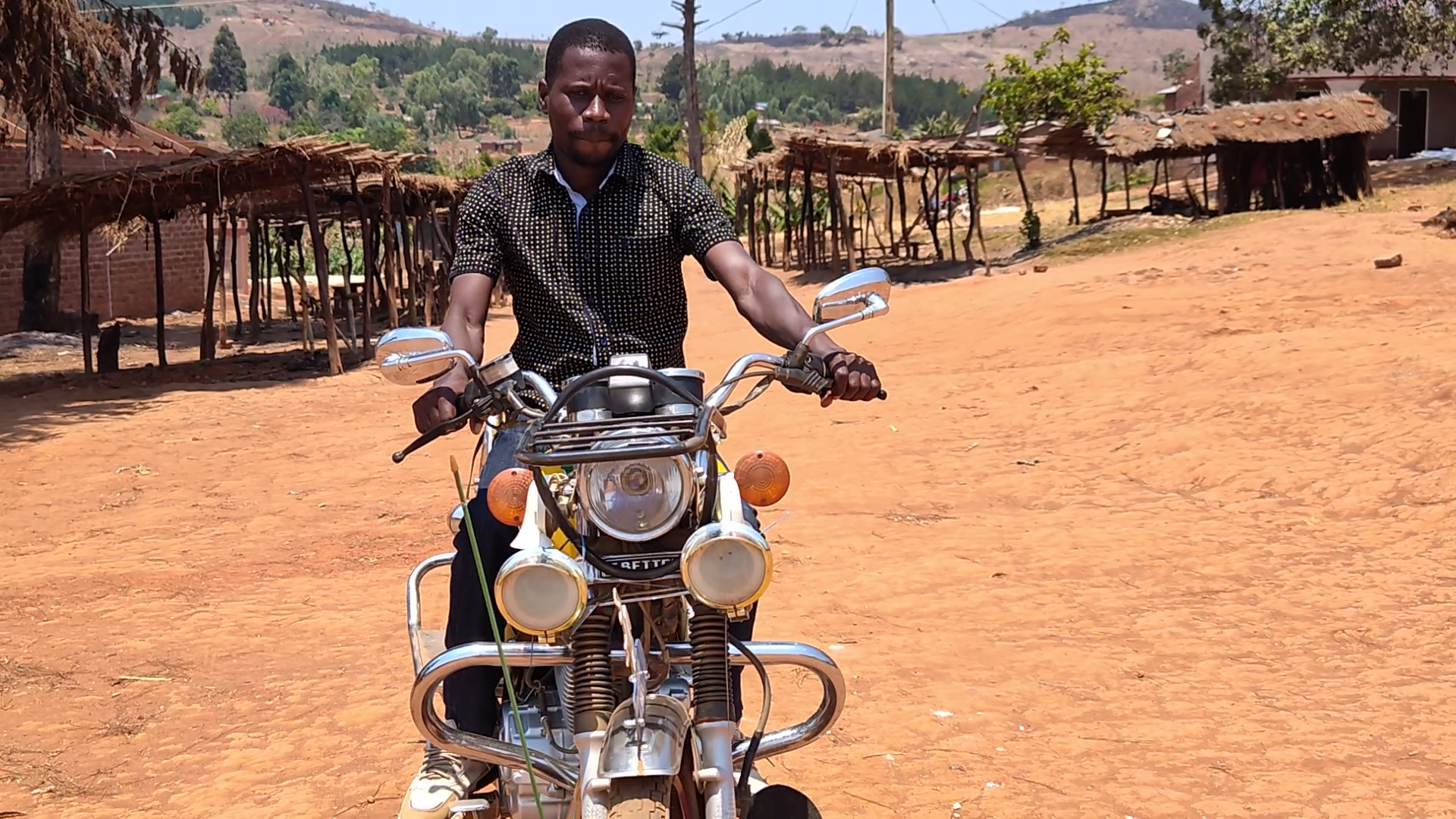
From beans to wheels – Jumani’s hard work in seed production paid off, allowing him to buy his first motorcycle
Ephraim Chavula, a member from Group Village Headman Mzikiri, echoes Brenda and Juman’s transformation. During the 2024/25 rainy season, he planted one hectare of beans and harvested 1300 kg of basic seed, earning approximately MK6.5 million (USD 3,700). With his profits, Ephraim paid his son’s university fees, covered his daughter’s private school tuition, and reinvested in his farm.
His story demonstrates how improved seed and farmer‑led innovation are not only boosting yields but also opening doors to education, financial stability, and sustainable growth for farming families.
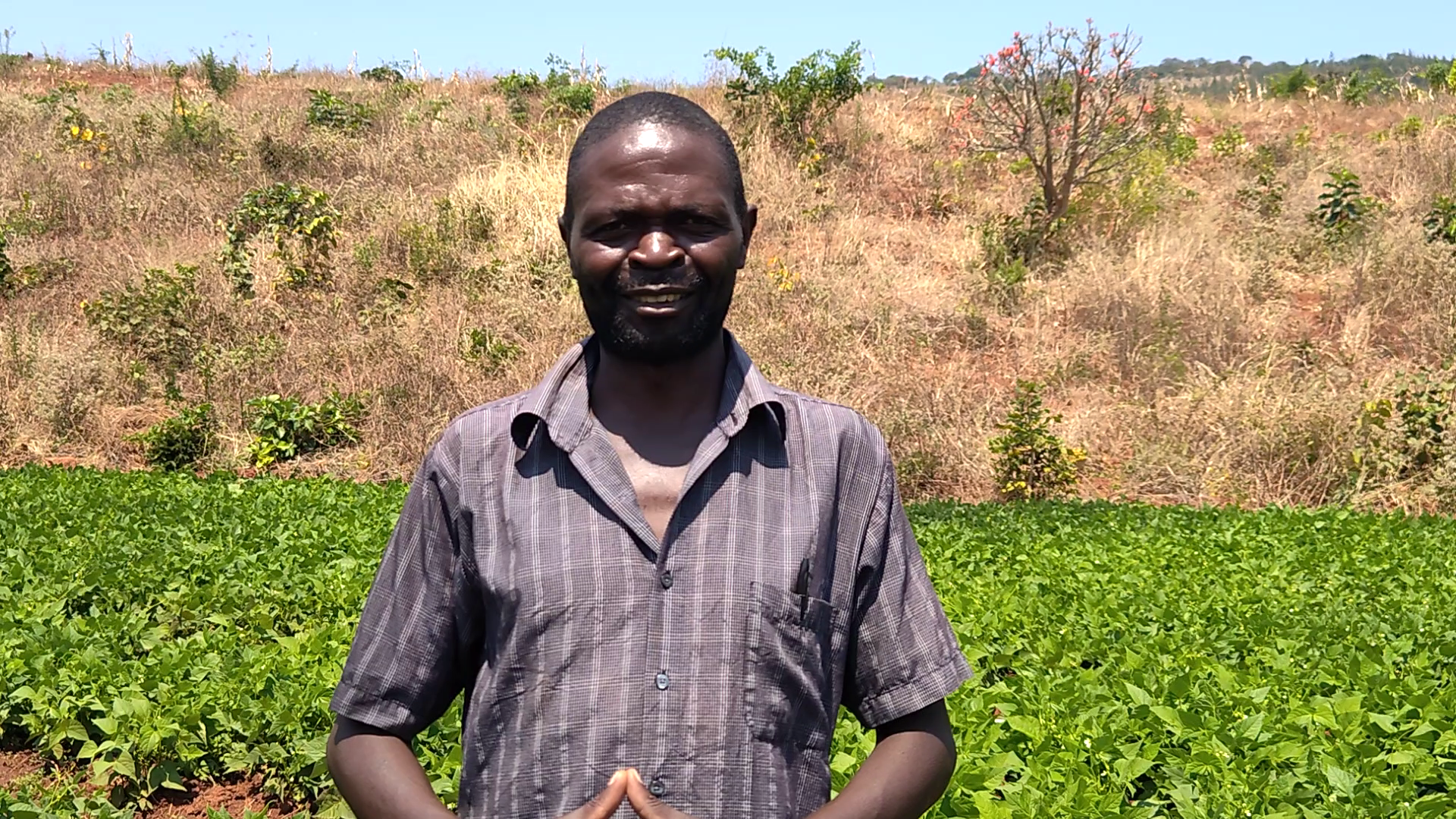
Driven by success, Ephraim Chavula dreams of seeing his fellow farmers become multi-millionaires through bean farming
Ephraim, who is also Chairperson of the Farmers’ Club, shares a bold vision: he wants to see hundreds of farmers turn into multi-millionaires through bean farming. His leadership is driving the group to encourage every member to expand their land under bean cultivation, ensuring that each farmer maximizes returns on their investments.
“Farmers are looking for money, and the fastest money is from beans,” explains Ephraim. “You can harvest in three months and grow beans almost three times a year, which means you earn more than with other crops. The income has helped me meet my responsibilities without borrowing for school fees or pocket money for my children. In our club, we are aiming high. Our goal is for farmers to become millionaires, starting from MK30 million [USD17,133] and above. We push each other to grow more and harvest more.”
A short distance away, Robert Chirambo, a member of the Khanga Farmers Club, was linked with the same Seed Co to produce basic seed. In just four months, his hard work paid off. He then used the proceeds from bean sales to buy a car. Together with 14 other farmers in the group, they have been re-contracted by the company to produce certified from the basic seed they produced in summer and are now expecting to earn over USD120,000 from seed sales by the end of November 2025.
Across Rumphi and beyond, farmers supported by PABRA and Seed Co through the AID-I, are proving that with the right tools, even smallholder agriculture can be a driver of economic independence and improved wellbeing.
Mphompha is just one of many communities in Malawi benefiting from this model of agricultural innovation and public-private collaboration. By providing access to improved bean varieties with consumer preferred traits, high-yielding, nutrient-rich seed, technical production support, and reliable markets, the initiative is not only improving household incomes and nutrition but also building resilience in the face of climate change and economic instability.
As Malola Kanyenda puts it, while other commercial crops he grew in the past – like tobacco – let him down, he has never regretted switching to beans as his main cash crop.
“I used to grow tobacco, but the market prices never matched the effort and costs it took to produce the crop,” explained Kanyenda. “Bean farming is different. It’s a short-term crop. Unlike other crops that paid me once a year, beans allow me to earn twice as much within the same period.”
To reach last‑mile farmers across Malawi, PABRA through AID‑I, in partnership with Seed Co, has engaged several scaling partners in the bean value chain — including Chimpeni Estate, Nyasa, Farmrite, Farming with Urunji, and EASI Seeds. Collectively, these partners have produced over 550,000 kg of certified seed for NUA45 and Sugar 131. Beyond large‑scale producers, the project has also supported individual seed growers with production skills, enabling them to generate certified seed quantities ranging from 500 kg to 3,000 kg.
To ensure sustainability, Duncan MacPherson Milele and Chimpeni Estate have produced 154,000 kg of early generation seed for Kabalabala, NUA45, and Sugar 131. When planted in the next season, this seed is expected to yield over 21,000 kg of certified seed during the 2026/27 growing season.
The initiative also ensures grain farmers benefit from structured markets. TEV Food, a South African company, has been engaged to off‑take grain from seed producers, with a capacity to purchase up to 14,000,000 kg annually.
Together, these efforts demonstrate how strategic partnerships, improved seed systems, and market linkages are transforming bean farming into a sustainable pathway for income, resilience, and food security.
Cover Image: Mphompha Farmers’ Club member Malola Kanyenda irrigates his beans with an improvised sprinkler

